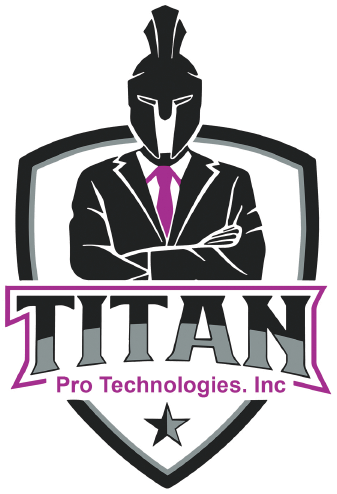Do you have trouble with data that isn’t synchronized? Are you sick of people being on separate sites all the time? HVAC software is extremely effective since HVAC companies deal with many moving parts and difficult tasks on a daily basis. Cloud HVAC software may offer numerous advantages, ranging from improving customer happiness to inventory management. This blog will highlight the advantages of integrating your work systems with HVAC management software.
What is Cloud-Based HVAC Management Software?
Cloud-based HVAC management software is a digital solution designed to streamline and optimize the operations of heating, ventilation, and air conditioning (HVAC) businesses. Unlike traditional on-premises software, cloud-based platforms store data securely on remote servers accessible via the Internet, allowing HVAC companies to manage various aspects of their operations. Additionally, cloud-based HVAC management software often offers mobile applications, enabling technicians to access job details, update work orders, and communicate with customers while in the field, enhancing efficiency and customer satisfaction. With this support, functions such as scheduling, dispatching, invoicing, and inventory management can be operated from any location with internet access.
Benefits of Cloud-Based HVAC Management Software
Accessibility and remote management
Accessibility and remote management have an immense influence on cloud-based HVAC management software, which dramatically changes the manner of HVAC business operations. Through cloud-based systems, experts and managers can retrieve vital information and carry through critical tasks depending on their location with internet connectivity. Being readily available gives way to timely updates of job duties, schedule changes as well as client correspondence thereby enhancing response and decision-making speed. Additionally, cloud-based HVAC management software facilitates remote supervision of field operations, giving managers a decentralized power to oversee and coordinate technicians effectively. They may assign and prioritize jobs, show technicians’ locations, and monitor performance metrics, all without being physically present at the office or job sites. This level of remote management enhances operational efficiency and optimizes resource allocation.
Scalability and flexibility
Scalability and flexibility are the two primary advantages of cloud-based HVAC management software due to its ability to adapt to HVAC companies’ changing needs and business growth. By using cloud-based solutions, businesses may scale up or down without investing in infrastructure. The companies may increase needed resources, add new users, and expand functionalities unlimitedly without infrastructure investments. Additionally, the majority of these platforms come with customizable options and integrations, so HVAC businesses can personalize the software to their unique workflows and preferences.
Fast billing cycle
The constant payment cycle is a remarkable advantage of Cloud-Based HVAC Management Software for the reason that it allows automation of invoicing processes. Cloud-based solutions enable HVAC companies to retrieve customer data, service history and work that has been done during the job from any place at any time at any place with an internet connection. Such accessibility allows technicians to even create invoices in real-time after completing service tasks, thus avoiding the problems of lag during billing cycles. Moreover, auto features incorporated into cloud-based software can also significantly shorten the billing process by automating invoice generation and sending out reminders for due bills.
Cost-effectiveness
Cost efficiency is a vital advantage of the Cloud-Based HVAC Management Software that has several levers. Initially, with cloud-based solutions IT infrastructure costs and hassles occur. The capital investment is reduced and IT-related expenditures taper off. Moreover, subscription-based business models provide flexibility and scalability advantages, where HVAC firms are supposed to pay only for the features and resources they use, not worried about excess capacity investments. On the other hand, cloud-based software is able to eliminate many manual tasks, saving labor input and benefiting the production volume. Moreover, the possibility of offsite access to the software saves transport expenses for technicians and increases operational effectiveness.
Instant information
Instant information allows immediate access to valuable data from anywhere on earth with Internet coverage. This real-time access to information introduces a new era of instant comfort, allowing HVAC firms to tackle issues like assigning job schedules, positioning technicians, and responding to customer queries instantly as they come. Technicians can fulfill their tasks by having with them instant access to the job details, customer history, and inventory levels with the use of their mobile devices. They thus acquire all the required information on-the-fly. Moreover, the supervisor can track operations with immediate feedback, so any issue can be addressed beforehand and resources can be used efficiently.
Enhanced data security
Increased data security is the most prominent advantage of Cloud Based HVAC Management Software as a result of several reasons. The servers of cloud-based systems are normally secured with strong encryption protocols to protect the data kept on remote machines. In addition, responsible cloud service suppliers spend a significant portion of their resources on effective security measures: firewalls, intrusion detection, regular security checkups, etc. This makes it possible to provide a high level of security against cyber threats. Cloud-based services also provide automatic backups and disaster recovery functions to minimize the risk of data loss caused by both hardware failures and natural disasters.
Integration with other systems
Integration with other systems is a standout benefit of Cloud-Based HVAC Management Software as it enables seamless collaboration and data exchange between different tools and platforms. By integrating with other systems such as accounting software, CRM systems, and third-party applications, HVAC businesses can centralize their data and streamline workflows. Furthermore, integration with CRM systems enhances customer relationship management by providing a comprehensive view of customer interactions and service history.
Steps to Implement Cloud-Based HVAC Management Software
Needs Assessment: Start with the makeup of your HVAC business: assets, staff, and key performance indicators. Identify the areas of pain that you need to resolve, what can be improved, and the exact features and functionalities that the software should have.
- Research and Selection: Review multiple modern HVAC management software solutions offered in the market. Check each option to see if it meets criteria such as functionalities, pricing, scalability, user interface, and support. Decide on a software solution that complies almost completely with your business’s requirements and goals.
- Training and Onboarding: After you choose a software appointment, you need to facilitate proper training and onboarding for your team members. The information provider might create training sessions, tutorials, and documentation to help users understand how the platform works by using its functionalities. Provide continuing support and guidance when the team gets used to the new system.
- Data Migration: Upload existing information like customer records,t service history, inventory database, and employee details into the new cloud app. Work hand-in-hand with your software provider to guarantee a seamless and precise data migration architect. Check data integrity and integrity to prevent any inconsistencies or data errors.
- Customization and Configuration: Tailor the software to be fit with your in-house business processes and workflows. Configure settings, preferences, and access permissions consistently with your organization. Utilize the variety of customization options to make the software fit your particular needs and augment the efficiency. Moreover, ensure to pull user reviews or testimonials to showcase how other small businesses have benefited from the software.
- Testing and Optimization: Verify that the software has been tested perfectly so that it uncovers any bugs, issues, or areas for improvement. Gather feedback from users and other involved people to enhance what is needed, if any, and then make the necessary adjustments. Consistently look for opportunities to optimize the software configuration and workflows to improve performance and usability.
- Launch and Integration: After the software is fully configured and tested, release the system organization-wide. Make sure that your HVAC system works with other tools and systems within your company, including accounting software, CRM systems, and mobile applications.
Upgrade Your HVAC Management with Titan Pro Technologies
Unlock the full potential of cloud-based HVAC management with Titan Pro Technologies. As a leading provider, we understand the intricate needs of your business. Our dedicated team offers unparalleled assistance, ensuring seamless integration, optimized workflows, and comprehensive training. With our support, streamline operations, boost efficiency, and maximize profits. Trust in our expertise to elevate your ServiceTitan experience and propel your business toward success. Contact us today to discover how we can tailor our support to meet your unique needs.
FAQs
Yes, cloud-based software is accessible from anywhere with an internet connection, allowing users to access their data and applications remotely.
Yes, data security is a concern when using cloud-based HVAC software, as it involves storing sensitive customer information and business data on remote servers.
Yes, cloud-based software can typically integrate with other business systems through APIs (Application Programming Interfaces).
Yes, cloud-based HVAC management software is typically cost-effective, allowing businesses to pay only for the features and resources they need.
Cloud-based software enables instant access to billing data from any location, allowing for quicker invoicing and streamlined billing processes.


